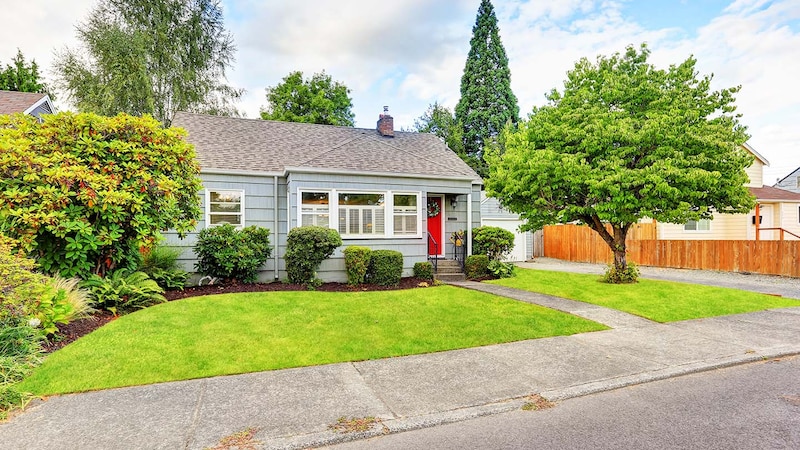Jumbo loan: Definition, requirements, limits, and more

Choosing your mortgage is one of the biggest financial decisions you can make. For high-value homes, this can be especially challenging if the mortgage amount requested exceeds the loan limits set by the Federal Housing Finance Agency (FHFA). In some cases, you can get full funding through multiple loans, but this might become complicated and may cost you more in the long run.
This is where “jumbo loans” can potentially come in handy. Jumbo loans are mortgages specifically designed to finance higher-value homes that fall outside FHFA limits, offering a way to finance pricey properties without multiple mortgages. But, for a few reasons, jumbo loans tend to come with stricter requirements. To help figure out if jumbo loans are right for you, let’s look at how they work and what to know before applying.
What is a jumbo loan?
A jumbo loan is a mortgage that exceeds the limits set by the FHFA for conforming loans. Loans surpassing these limits are generally not backed by government-sponsored enterprises (GSEs) like Fannie Mae and Freddie Mac, which buy mortgages from banks to help mitigate risk for the lender. Borrowers typically seek jumbo loans to finance high-value homes for which more traditional mortgage options are limited.
Jumbo loan limits
While jumbo loans exceed the FHFA caps on conforming loans, they often have limits of their own. These limits vary by lender and location and are routinely adjusted based on prevailing market conditions. As of 2024, this limit is $766,550 for a single-unit house across most of the contiguous United States, though certain areas like Alaska and Hawaii have limits as high as $1,149,825. In addition, high cost-of-living (HCOL) areas have their own limits on a per-county basis. Speak with a qualified home lending advisor for more information about the jumbo loan limits available to you.
How do jumbo loans work?
In most respects, jumbo loans function like standard mortgages. Like other types of home loans, jumbo loans can be structured as fixed-rate or adjustable-rate mortgage (ARM) loans, offering some flexibility for your preferences and financial situation. The main difference between a standard home loan and a jumbo loan is that the latter is too large to be backed by Fannie Mae or Freddie Mac — and often has additional requirements.
Jumbo loan requirements and qualifications
Since jumbo loans are considered higher risk, lenders tend to examine your application more closely. Let’s learn more about what lenders are typically looking for:
Higher credit scores
To qualify for a jumbo loan, you generally need a higher credit score than you might for a conventional loan. Lenders use your credit score to see if you’re financially reliable, with higher scores helping to demonstrate greater financial responsibility.
Lenders will review your credit report for any negative items, such as missed or late payments, foreclosures and bankruptcy. After a certain length of time, these items may become seasoned — meaning their impact on your credit score reduces. However, you may be asked to explain the reason for any derogatory events. When applying for a mortgage, it's generally considered best to wait until these items have fallen off of your credit report, which could take several years from the date they were reported for bankruptcy or foreclosure.
Debt-to-income ratio (DTI)
Jumbo loan DTI standards are typically higher as well. Your DTI is the comparison of your gross monthly income to your outstanding debts. If your percentage of debt is high compared to your monthly income, lenders may deem it potentially difficult for you to make your mortgage payments during financial hardship. If your credit score isn’t as high as your lender would prefer, a low DTI may help make up for it. Similarly, a high DTI may be offset if you have substantial cash reserves or an exceptional credit score.
Cash reserves
The third major factor that lenders look at is the amount of cash reserves you have in the bank. Depending on the loan amount, they may ask for proof that you can make your mortgage payments using only cash reserves for a specific length of time.
Manual underwriting
Unlike standard loans which often rely on automated underwriting systems, jumbo loans usually require manual underwriting. This involves a mortgage underwriter personally reviewing your financial details in-depth to weigh the higher risks associated with jumbo loans. This helps the lender conduct a more thorough assessment of any potentially complex financial situations, ensuring they are making a more informed decision when offering the funds for a jumbo mortgage loan.
Higher down payments
Along with the larger loan, jumbo loan down payment requirements are typically higher too. If you’re considering a jumbo mortgage loan, it might be wise to start saving for a down payment early.
Jumbo loans pros and cons
Jumbo loans are useful for borrowers looking to make a high value purchase. But with their added requirements and potentially higher costs, there are some potential drawbacks to consider as well. Let’s look at some of the pros and cons of jumbo loans to help you make a more informed decision.
Jumbo loan pros
The main advantages a jumbo loan offers are:
- Larger loans: Jumbo loans offer access to higher-value financing, which may be necessary for specific properties or high-cost areas where conforming loans may not be sufficient.
- Simplified borrowing: Instead of taking multiple loans to cover the cost of a high-priced home, jumbo loans consolidate your financing into a single mortgage. This may help simplify your borrowing process and make for smoother mortgage management.
Jumbo loan cons
Some of the potential cons of jumbo loans might be:
- Stricter requirements: Because of the increased risk to lenders, the review process is typically more thorough for jumbo loans and the financial requirements more demanding.
- Higher closing costs: Jumbo loans require more extensive review on the lender’s part and the associated fees and closing costs are typically higher than those of a standard mortgage.
- Higher interest rates: Jumbo loans may sometimes carry higher interest rates than their conforming counterparts to offset some of the added risk.
- Larger down payment: Because of the transaction size, you can generally expect a jumbo loan down payment to be higher than a standard mortgage’s. Jumbo loan down payment requirements can vary, however, so it may be worth speaking to your lender about their respective policy.
How to apply for a jumbo loan
The application process for a jumbo loan is generally similar to that of a standard mortgage, with a few notable differences. Let’s walk through how you’d typically apply for a jumbo loan:
1. Understand your finances
Before applying for a jumbo loan, it might be wise to take stock of your personal financial situation. As mentioned earlier, jumbo loan requirements are typically higher than those of conforming loans. If necessary, you may want to take steps to improve your credit or debt-to-income ratio, as these tend to be major factors in your jumbo loan application.
2. Gather your paperwork
Because lenders review your finances more thoroughly when applying for a jumbo loan, you may have to gather more than the usual mortgage documents. Lenders are looking for a comprehensive financial profile that shows you’ll be able to handle the larger loan amount.
3. Compare loan options
Not every lender offers jumbo loans, and both terms and rates vary between them. It’s generally recommended to thoroughly research the available jumbo loan options in your area and read the fine print. A qualified home lending advisor can help you compare loan options so you can choose one that aligns with your financial goals and preferences.
4. Consider getting preapproved
For preapproval, lenders review your finances and provide an estimate of the loan amount they’d be willing to offer you. This helps you ensure the loan you’re considering aligns with your plans. Getting preapproved may help streamline the underwriting and approval stages as lenders will already have a picture of your financial readiness to take on the loan.
5. Submit your application
Once you’ve picked a property, compared lenders and gathered the necessary paperwork, it’s time to fill out the formal application for the loan. Once submitted, your lender will fulfill the underwriting process. You can generally expect an in-depth verification of your financial history and stability.
6. Close on the loan
If approved, the next and final step is to close on the loan. This means finalizing your terms and signing the papers. It also means paying the closing costs, which may be a sizeable lump sum due to the larger loan amount and more complex underwriting process.
7. Celebrate!
Once you’ve signed on the dotted line and made the necessary payments, it’s time to take a deep breath and celebrate your new home. After all, homeownership is a major accomplishment.
Jumbo loan tips
Buying a home can be a fun and exciting process. There are a few things you can do to make the jumbo application experience easier:
- Keep an eye on your credit report: It might be wise to check your score early and often. Your credit score won't go down when you check your report, but it may dip temporarily when your lender takes out a hard inquiry. Building good credit and waiting to finance any other big purchases until you close on your loan might benefit your application.
- Lock in your rate: Mortgage rates can change considerably in just a matter of days. If you have access to a favorable rate, it might be worth considering locking it in.
- Shop around: Interest rates and closing costs can vary greatly between mortgage providers. It’s considered good practice to talk to a few lenders before making a final decision.
- Verify your information: This may seem simple, but double- and triple-checking your information to make sure everything is correct on your application can help make for a smoother process.
In summary
A jumbo loan is a loan that exceeds the limits set by the FHFA. This makes it a non-conforming loan, meaning it won’t be backed by a GSE like Freddie Mac or Fannie Mae. Because of this, and the higher dollar amount, jumbo loans are generally considered riskier for lenders and thus call for a more stringent review process. A jumbo loan might be a good idea if you’re considering properties with higher price tags — especially when the alternative might be multiple loans. Speaking with a qualified home lending advisor can help you understand if a jumbo loan will meet your needs.
Jumbo loan FAQ
1. How much is a jumbo loan?
A jumbo loan is a loan that exceeds the loan limits set by the Federal Housing Finance Agency (FHFA). These limits vary by location, so the amount that constitutes a jumbo loan in your locale depends on the limits set for your area.
2. Are jumbo loan rates higher?
Jumbo loan rates are sometimes higher than those for conventional loans. This is generally due to the increased risk lenders take on when issuing larger loan amounts that exceed standard conforming loan limits.
3. Do jumbo loans require mortgage insurance?
Some jumbo loans do not require private mortgage insurance (PMI), unlike conventional loans that exceed an 80% loan-to-value (LTV) ratio. This can vary, however, by lender and location. Speak with your lender regarding their respective policies.
4. Can I refinance my jumbo mortgage?
Yes, you can typically refinance a jumbo mortgage. The process is generally similar to how you would refinance a conventional mortgage. Consult with a qualified lending expert to learn more.



